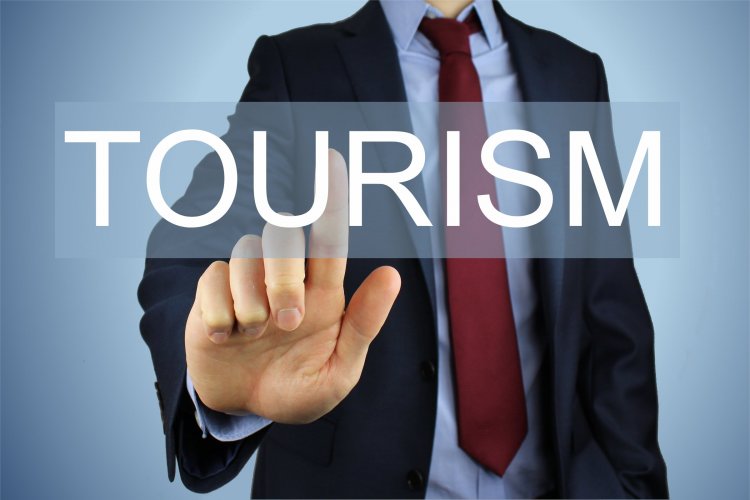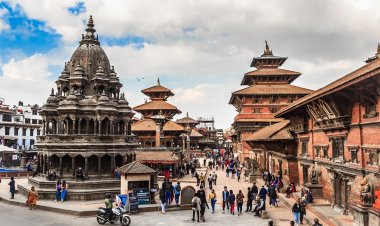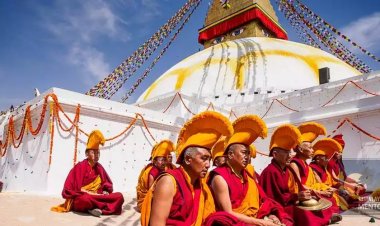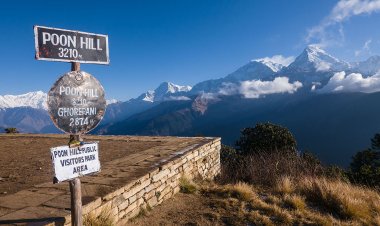How Nepal can benefit from the tourism industry
The major benefit from tourism in the growth of different sectors and the promotion of Nepal through tourism.

No one has ever been to heaven, but if you want to know what heaven is like, you must visit Nepal at least once. In Nepal, we have the lofty Himalayas. These mountains are full of fine scenery. There are many beautiful spots in the mountains. The snow-capped peaks, the green forests, the rushing torrents, the deep gorges, the roaring falls, the tranquil lakes, the fine flora and fauna, the antique and artistic temples, the exciting trekking routes, the art, and the culture of Nepal attract many people from different parts of the world. Every year, thousands of foreign tourists come to our country. Tourism has become Nepal's largest economic sector, which creates jobs, drives exports, and generates prosperity across the world. According to Lonely Planet, Kathmandu is the 5th top travel destination, while tripadvisor.com has ranked Kathmandu 19th out of the 25 best tourist destinations in the world for the year 2019. This survey reveals that many places in Nepal could fascinate tourists from around the world.
Tourism has become one of the main income sources in Nepal. Foreign currency is the most valuable thing that can be obtained from the tourism industry. The tourists who come to our country exchange foreign currency. According to the economic survey for 2020/21, the foreign exchange earnings of this sector were Rs. 24,95,59,00,000 in 2020. Foreign currency is useful to us for the purchase of foreign goods. Tourists buy some goods and interesting and native articles in our country, which can help producers earn money. Another sector where tourism is beneficial is the hotel industry. Most tourists prefer to stay in well-appointed, luxury hotels with excellent service. Some good, five-star hotels have been built in Kathmandu to accommodate foreign tourists.
The exchange of culture, norms and values between different societies is only possible through tourism. We can see many people in the Kathmandu valley and other parts of the country speaking a little bit of English, though they are illiterate and uneducated and are guiding foreign visitors. Those who interact with tourists lose their prejudices and develop a more open mind. They become cosmopolitan in their manners and can easily mix with the people of other countries. People's attitudes and lifestyles can have an impact on tourism. As there is a lot of superstition in Nepali society, tourism helps to bring about changes in superstitions and traditional thinking.
As we all know, Nepal is the world's smallest country, which makes it difficult to locate on a map. Tourists help acquaint their countrymen with our country. If we treat our tourists well and provide them with the best facilities and services, they'll talk about it when they return to their country. Tourism also helps to popularize Nepalese art, skills, cultural beauty, and the hospitality of Nepalese people around the world. That's how tourism helps to publicize our country in different parts of the world. What we can't tell about our country spending a lot of money on publicity, we can do with the help of tourists. That's why the tourism industry is very beneficial for Nepal.
Even though most tourists come from modern cultures and societies, they prefer handcrafted goods over machine-made goods. That's why the tourism industry plays a vital role in the development of handicraft industries. Different types of handicrafts, such as idols, Nepali caps, woolen carpets, and paper products representing Nepalese art and culture, are motivated to be produced in different parts of the country.
Tourists love to visit rural areas rather than cities because most of the tourist destinations are located in remote areas. As the tourists enjoy the sylvan beauty, sightseeing, and trekking in the rural areas, the government is forced to develop transportation and communication facilities. Without proper transportation facilities, tourists are unable to reach their destinations. Hence, expansion and development of the tourism industry develop rural infrastructure like roads, electricity, communication, and so on.
As the tourism industry needs different types of highly skilled manpower to provide different services to tourists, it generates employment opportunities. As tourism industries expand, there is a need to produce a large number of human resources. That's how tourism helps to generate employment, both directly and indirectly, for people in different tourism-related activities such as hotels, travel agencies, mountaineering businesses, rafting, etc.
The Nepal government had announced "Visit Nepal 2020" to promote the country's tourism industry, but due to the COVID-19 pandemic, it was postponed. Due to COVID, the number of tourist arrivals in 2020 (excluding Indian tourists) was 2,30,085—an 81% decrease from 2019. In 2021, the number of foreign tourist arrivals further dropped by 34.4 percent to slightly over 150,000 as compared to 2020. According to the tourism board, a total of 5,46,216 tourists have visited Nepal in the recent eleven months (January–November) of 2022.
Tourists from every part of the world are free to visit Nepal. We should attract more and more tourists so that the economy of our country will rise. The government should develop transportation and communication facilities as well as tourism infrastructure such as hotels, travel agencies, trekking agents, and so on. The government should provide security measures in tourist destination areas so that tourists can feel free to stay where they are. The provision of adequate trained manpower is essential for the development of tourism in Nepal. The provision of adequate recreational arrangements should be made in each tourist destination area.
In recent years, there has been exponential growth in the number of travel agencies, tour guides, tour operators, rafting agencies, trekking agencies, and so on. Up to mid-March 2021, the number of registered travel agencies reached 3743, and trekking agencies had 2797. There were 142 star-rated hotels and 1293 tourist-rated hotels until mid-March 2021.
What's Your Reaction?





































































































